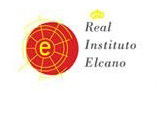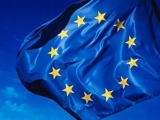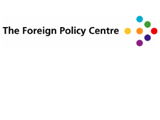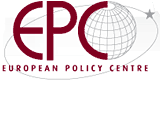Competing Visions of Effective Multilateralism
16 Dec 2011
Throughout this week, the ISN has considered the concept of global interdependence from a number of perspectives. Yet, despite the hoped-for diversity of our focus, it is perhaps inevitable that we favored Western conceptions of formal and informal global governance over others. Well, if a mea culpa is in order, we readily admit that there exist distinctly regional perspectives on facilitating greater global-level regulation and, less expansively, multilateral cooperation. Take the case of the Association of Southeast Asian Nations (ASEAN) as an example. Analysts have traditionally claimed that this regional organization has been a great success (‘Southeast Asia is no longer a war-torn region’) or they view it as an ineffective, meaningless institution that has been unable, to cite one example, of dealing with one of its own – the ‘troublesome’ member state of Myanmar. In truth, the reason why the literature on ASEAN is so polarized is not simply a question of seeing the glass as half-empty or half-full. The question is rather what, in the beholder’s eyes, is the role of multilateralism – yes, that intermediary step between true globalized governance and the Westphalian system – in tackling transnational problems. To prefigure next week’s meditation on the tension that exists between state-centric and multilateral approaches to governance, today’s selected readings compare and contrast two visions of the role and future of multilateralism in a changing international system.
In external pageA European View on the Future of Multilateralismcall_made, Manuel Lafont Rapnouil makes an economically-driven case for multilaterally-based global governance in the future. As suggested in the previous paragraph, that means a “not too hot, not too cold” intermediate approach that avoids the extremes of political one-worldism on the one hand and a semi-self-help Westphalian system on the other. After all, Rapnouil argues, the first option is neither realistic nor desirable from a distinctly European perspective. What is desirable is the capacity of global bodies to take action if and when “objectives cannot be sufficiently achieved by lower level actors.” Since taxation and the provision of public goods, for example, are within the capabilities of most states, they should remain the responsibility of those states, even if members of the Eurozone now chafe at this pre-sovereign debt crisis vision. This intermediate-level vision, by the way, is designed to serve three hallowed European concepts – 1) external pagesubsidiaritycall_made (the principle of devolved political responsibility), 2) the legal concept of external pagecomplementaritycall_made, and 3) the need for political-institutional transparency.
In the case of the second option (retreating back toward a semi-self-help Westphalian system), Rapnouil worries that “by paralysis, desertion or simply a slow demise,” such an option would gut the multilateral system he advocates. It would result in the wide-spread bilateralization of international relations; it would encourage regional alignments and re-alignments behind hegemonic powers; and it would further impede the cooperation needed to manage transnational problems. History tells us, or so Rapnouil argues, that this is the least favored option of many – if not all – European countries. That is why the middle option – the ‘middle of the road’ scenario – is ultimately the way forward. It provides legitimacy, accountability and efficiency, but only if they are inscribed within clear and regulated frameworks.
Ah, but now for a non-Western view. In his analysis, Wang Youming argues that the EU’s ‘globalist vision’ is not necessarily compatible with China’s concept of a ‘Harmonious World.’ Both these competing models, however, are sufficiently strong enough to prevent the other from becoming the single dominant approach to large-scale governance in most parts of the world. In China, Youming writes, the EU’s globalist beliefs are regarded as just another narcissistic example of Western centralism that aims to ensure the West’s politico-economic primacy and to legitimize its seemingly inexhaustible desire to meddle in the internal affairs of sovereign states.
The deep source of the Chinese ‘Harmonious World’ concept of mutual interdependence, unsurprisingly enough, is Confucianism, which stresses that “differences can be resolved through dialogue; tension can be defused through consultation; common development can be reached through economic cooperation; and cultures can be enriched through exchanges.” In other words, the Chinese and European concepts are partially compatible with each other. They both prefer a multipolar world over recent American hegemonic stability, and they both prefer sustained economic development as a grand strategic political aim.
But having just said this, the differences between the two concepts under discussion here are greater than the convergences. In contrast to the EU, China does not view supposedly universal values as universal. It does not view core values, such as democracy or human rights, as preconditions for an effective world order. It believes in multilateralism, but it conveniently forgets (as do some of its European counterparts) that for multilateralism to really work it needs a roughly equal distribution of power. (Youming doesn’t raise this point, but past social science literature does. Power imbalances have historically led to bandwagoning or balancing behaviors on the part of political actors. Globalists, in contrast, now counter-argue that these tendencies may have been true in the past, but today’s increased [and simultaneous] transnationalization and devolution of power raises doubts about the inevitability of these ‘realist’ responses in the future.) Finally, and most obviously, Chinese diplomats may wrap their foreign policy in multilateralist wrapping paper, but inside there is a closed-fist belief that the nation-state should remain the prime actor in international affairs. Beijing’s faith in state sovereignty, in other words, remains unconditional. Behind the emphasis on dialogue, consultation, exchanges and cooperation remains a status quo’ism that stresses Confusion harmony, but also respectful difference. It is a very different ‘take’ on multilateralism than Europe’s, and it anticipates our exploration of the subject next week. It also shows that debates about preferred forms of governance are rarely detached from discussions about values. As a result, regional perspectives should always be an integral part of the debate.
ISN Partner Content

The EU's Global Governance Versus China's Harmonious World
The EU’s ‘Global Governance’ and China’s ‘Harmonious World’ seem to be competing to be the dominant idea on international relations in the new century. After looking at the background and essence of the two theories, this paper argues that although they bear some similarities, the differences between them are substantial

European Security Strategy
This EU document outlines the principles behind the European security strategy. It identifies contemporary global security threats and describes the EU's preferred commitment to conflict prevention and peace building.

Introduction: The Role of the EU in Fostering "Effective Multilateralism"
This text examines the potential for better cooperation between the EU and the UN. It argues that both organizations need each other, but the EU specifically needs the UN not only as a main partner, but also as a main arena for fostering better global governance, which the European Security Strategy declares is a key security interest of the EU.

"Effective Multilateralism:" Europe, Regional Security and a Revitalised UN
This publication aims to bridge two debates on the future of multilateralism - the global one and the specifically European one. It then specifically focuses on 1) the role of the EU in promoting effective multilateralism in the international community, 2) the needed reform of the UN, and 3) the realization of greater regional cooperation. The publication finally offers some concrete proposals for EU action on all these fronts in the future.

Towards Effective Multilateralism - The EU and the UN: Partners in Crisis ManagementThis paper examines the increasingly close relationship between the EU and the UN in the field of crisis management. By focusing on the Iraq crisis (1990-2004) and the ongoing debate over the ‘legitimate’ use of force, it describes the EU's efforts to develop what it defines as 'effective multilateralism'. The paper also examines the challenges that characterize the EU-UN relationship, particularly by looking at the doctrinal, operational, institutional, and political dimensions in EU-UN collaboration.
Recommended readings
Jochen Prantl, Effective Multilateralism: Through the Looking Glass of East Asia (Palgrave Macmillan: St Antony’s Series), external pageforthcomingcall_made
Manuel Lafont Rapnouil, “A European View on the Future of Multilateralism,” The Washington Quarterly, July 2009: 181-196
European Union, Institute for Security Studies: external pagePartnerships for effective multilateralism: EU relations with Brazil, China, India and Russiacall_made
Friedrich Ebert Stiftung: external pageThe EU’s effective multilateralism – but with whom?call_made

